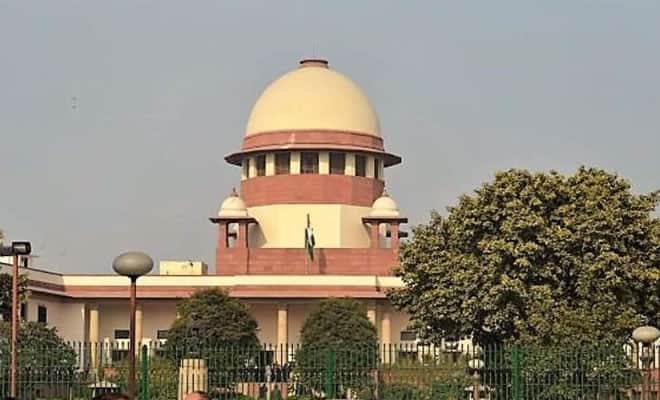Indian optician’s plea in Supreme Court threatens country’s banking industry: Report

Last updated on February 15th, 2023 at 01:13 pm
COVID-19 pandemic crisis and nationwide lockdown imposed by the government on March 25 to contain the spread of the virus have led several businesses in the country into major financial crises. Amongst many businessmen who faced losses due to pandemic shutdowns is Agra-based Gajendra Sharma who owns an eyeglass shop in the city. Even during the lockdown, Sharm had to pay $2,700 (approximately Rs 2 lakh) in monthly recurring costs.
In a bid to support the pandemic-hit businesses, the Reserve Bank of India (RBI) has introduced a debt restructuring scheme. Under this scheme, the Central Bank allowed the banks to grant a loan moratorium for three months of EMI falling due between March 1 and May 31, 2020. Later, it was extended by RBI for a further three months till August 31.
Therefore, the 53-year-old optician thought that the pandemic debt moratorium would help him with his home loan.
However, the authorities have warned that Gajendra Sharma’s $13,500 debt is risking destabilisation of banks in the country. As per a Reuters report, his complaint challenging the loan relief plan has brought many other borrowers before the Supreme Court which will cost potentially cost $27 billion to the lenders. These borrowers include small businesses, power utilities, shopping malls and real estate businesses. Regulators and the banking industry have expressed concerns that it could disrupt the financial system of the country at a time when the economy is trying to come back on track in the aftermath of the Coronavirus pandemic.
Reportedly, more than 120 lawyers have taken to the court in a bid to claim the debt relief promised by the RBI and the government. Many of the borrowers have claimed that the scheme is treating them harshly at a time when they are facing critical financial crises, calling for the banks to let go interest and compound interest that got accumulated when their earnings were suspended.
Read: Congress announces an all-India protest from 24 Sept against the farm bill
Speaking to Reuters, Gajendra Sharma stated that his debt load has increased due to the extra interest during the six-month reprieve that ended on August 31. In addition to this, he has also been paying monthly instalments on a $21,700 business loan, for which he did not claim for a moratorium.
Taking note of Sharma’s case, the Finance Minister has ordered a panel to review the impact of withdrawing interest and the compounding levy. This development has emerged at a time when Indian banks already have bad loans of over $120 billion, most of which are on state-run lenders.



